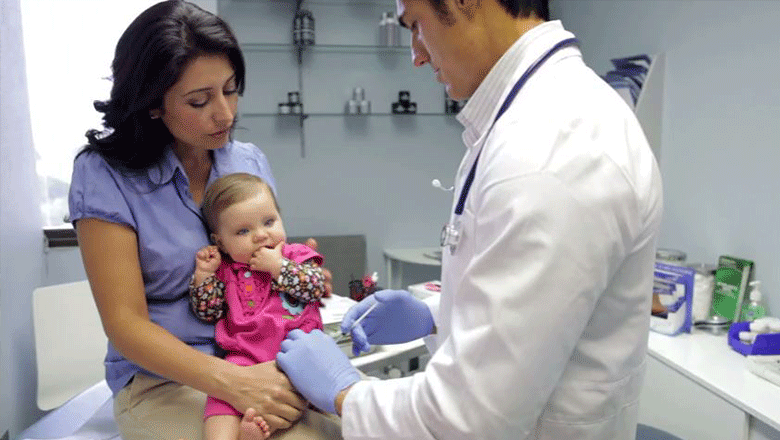Search
Research
Vaccine coverage in children born to migrant mothers in Australia: A population-based cohort studyOverall, infant immunisation coverage is currently >90% in Australia, but there are pockets of under-immunised children including children from migrant backgrounds.
Research
Immunisation with the BCG and DTPw vaccines induces different programs of trained immunity in miceIn addition to providing pathogen-specific immunity, vaccines can also confer nonspecific effects (NSEs) on mortality and morbidity unrelated to the targeted disease. Immunisation with live vaccines, such as the BCG vaccine, has generally been associated with significantly reduced all-cause infant mortality. In contrast, some inactivated vaccines, such as the diphtheria, tetanus, whole-cell pertussis (DTPw) vaccine, have been controversially associated with increased all-cause mortality especially in female infants in high-mortality settings.
Research
COVID-19 and changes in the National Immunisation Program: a unique opportunity to optimise the Australian Immunisation Register (AIR)Christopher Blyth MBBS (Hons) DCH FRACP FRCPA PhD Centre Head, Wesfarmers Centre of Vaccines and Infectious Diseases; Co-Head, Infectious Diseases
Research
A place for neutrophils in the beneficial pathogen-agnostic effects of the BCG vaccineThe BCG vaccine has long been recognized for reducing the risk to suffer from infectious diseases unrelated to its target disease, tuberculosis. Evidence from human trials demonstrate substantial reductions in all-cause mortality, especially in the first week of life. Observational studies have identified an association between BCG vaccination and reduced risk of respiratory infectious disease and clinical malaria later in childhood.
Research
Examining prescribing, timeliness and data recording of immunisations onto a national electronic immunisation register for inpatients at a tertiary paediatric hospitalThe aim of this study was to investigate the quality and adherence of inpatient immunisation prescribing, as well as timeliness and recording of immunisations onto the national immunisation register, within a tertiary paediatric hospital setting. We conducted an observational, retrospective review of inpatient immunisations at Perth Children’s Hospital from July 2018 to February 2019.
Research
Quality of benzathine penicillin G: A multinational cross-sectional studyBenzathine penicillin G (BPG) is used as first-line treatment for most forms of syphilis and as secondary prophylaxis against rheumatic heart disease (RHD). Perceptions that poor quality of BPG is linked to reported adverse effects and therapeutic failure may impact syphilis and RHD control programs. Clinical networks and web-based advertising were used to obtain vials of BPG from a wide range of countries.
Research
Adverse event reports of anaphylaxis after Comirnaty and Vaxzevria COVID-19 vaccinations, Western Australia, 22 February to 30 June 2021Within the first 4 months of the Western Australian COVID-19 immunisation programme, 49 suspected anaphylaxis cases were reported to the vaccine safety surveillance system. Twelve reports met Brighton Collaboration case definition, corresponding to rates of 15.9 and 17.7 per million doses of Vaxzevria and Comirnaty administered respectively.
Research
COVID-19 vaccine knowledge, attitudes, and experiences of health care workers in Perth, Western Australia: A qualitative studyHealth care workers (HCWs) faced an increased risk of Coronavirus Disease 2019 (COVID-19). Australia’s COVID-19 vaccine rollout commenced in February 2021 to priority groups, including HCWs. Given their increased risk, as well as influence on patients’ vaccine uptake, it was important that HCWs had a positive COVID-19 vaccination experience, as well as trusting the vaccine safety and efficacy data.

News & Events
Video: Flu vaccine Q&AIt's that time of year again... Flu vaccine time! Watch Dr Chris Blyth answer commonly asked questions in the video below.

News & Events
The Kids Research Institute Australia research ensures kids are protected against whooping coughResearch by The Kids Research Institute Australia will soon ensure young children are better protected against whooping cough.
